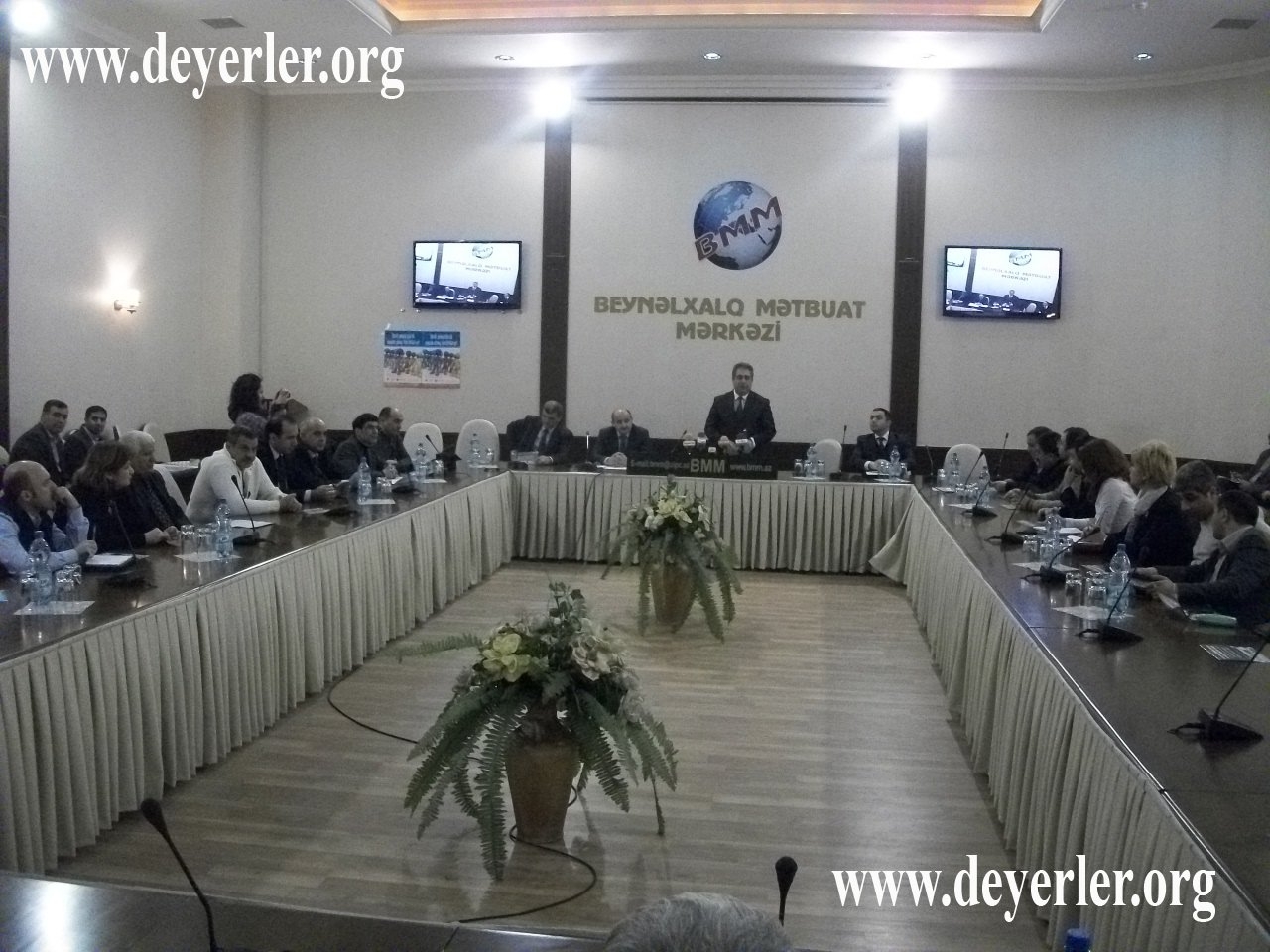|
IN THE SPOTLIGHT |
Eastern Partnership Civil Society Forum
|
|
Civil Society Defence Committee was restored in AzerbaijanAbout 100 NGOs attended a Public Forum organized jointly with Azerbaijan National Platform of the Civil Society Forum of European Eastern Partnership Program (CSF EPP) and Human Rights House Foundation on February 12, 2013. Among those present were representatives of international organizations and diplomats. Gubad Ibadoglu, the coordinator of the Azerbaijan National Platform of the CSF EPP, started the meeting by informing participants about the difficulties faced in organizing the Public Forum. He underlined that despite the fact that there were contracts with Park Inn, Golden Coast, Diplomat and Caspian Plaza hotels, they failed to respect the freedom of association, breached signed agreements on hiring conference halls and thus hindered the organization of the event. He said that similar situations had been encountered in the regions but now the practice has reached Baku – NGO representatives are obstructed in not only expressing their thoughts freely but in arranging meetings related to their projects and programs. G. Ibadoglu mentioned that civil society was deeply concerned about proposed contradictory changes for NGO legislation which has been submitted to the plenary session of the Parliament following a recommendation of its Legal Policy and State Building Committee. According to the Committee, these changes aim to enhance the financial status of NGOs and to increase transparency and accountability in their activities. But on the contrary, as a result of the changes, civil society institutions which have public control over government activities and contribute to increased transparency and accountability will be weakened. Therefore, it is unacceptable that these changes are adopted without holding public discussions, consultations with NGOs and soliciting feedback from civil society. Otherwise, it contradicts both with current legislation of Azerbaijan (Statue of Parliament) and 77th article of “Recommendation CM/Rec (2007) 14 of the Committee of Ministers to member states on the legal status of non-governmental organizations in Europe”. He also underlined that according to current legislation, apart from registering grant agreements at the Ministry of Justice local NGOs should submit as many as 15 reports to the Ministry of Taxes, State Social Protection Foundation and State Statistical Committee five times per year (four quarterly reports and one annual report). Furthermore, they should submit four reports to the Ministry of Finance in a year, and thus submitting 19 reports to various state agencies every year. G. Ibadoglu said that the processes which were now going on were a tool designed to dismantle independent NGOs. This is destroying the positive expectations which were gained during dialogue between NGOs and the government on July 03, 2012. He also touched upon registration issues of NGOs and stressed there is necessity to open a new phase of NGO-government dialogue. G. Ibadoglu called on the government to re-assess proposals in “Civil Society in Azerbaijan: national agenda for a change”. G. Ibadoglu noted that if government is worried about the transparency and accountability of NGOs then it should first simplify their registration process and create legal grounds for formalization of their tax, financial and other liabilities through registering unregistered NGOs. Shahla Ismayil, the representative of Human Right House Foundation in Azerbaijan focused on massive breach of human rights and assessed political freedoms of people. She noted that there is close correlation between deterioration over freedom of association, freedom of expression and restrictions imposed on activities of NGOs. Therefore, the government should respect these freedoms and guarantee their implementation. Mahammad Guluzade, consultant for “International center for Not-for-profit Law on CIS countries” delivered a lecture on expected legislation changes related to activities of NGOs and religious organizations. He warned about negative impacts of applying the expected changes in activities of civil society and stated that he had examined the projected changes to the Code on Administrative Violations (CAV), “ Law on “Non-governmental organizations" (public unions and funds) and Law on “About grants”. According to the draft changes to the CAV, if copies of grant agreements and decisions are not submitted to the Ministry of Justice during a fixed period by a grantee then officials will be fined 1500-2500 manats and legal individuals 5000-7000 manats. Besides, the amendments also stipulate penalizing officials 2500-5000 manat and legal persons 8000-15000 manats and confiscating funds and equipments if religious organizations and NGOs operate without a grant agreement and receive finances from delegations of foreign NGOs in the country. At the same time it is proposed that only those NGOs that operate specifically for charity purposes can receive up to 200 AZN as contributions. Afterwards, Chingiz Ganizadeh, the author of amendments to legislation, deputy of Parliament presented the project and discussions developed over it. Finally the Forum, participants adopted a declaration which reflected the views discussed during the meeting. They decided to reactivate the Civil Society Defense Committee established in 2009 to coordinate future activities. |
Project funded by the European Union
![]()








